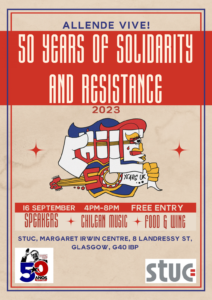The work of the Scottish political theorist Tom Nairn (1932-2023), and his seminal work, The Break-up of Britain (available here) , was the recently the subject of a well-attended conference in Edinburgh’s Assembly Rooms (for an account of the conference see Sean Bell’s article in Heckle). However, whilst there was much of value at the conference, a critical perspective on Nairn’s work – from a left perspective – was largely noticeable by its absence. It was not, however, always so. Shortly after the appearance of the first edition of Nairn’s book in 1977, the following review, written by the late Neil Williamson (who tragically died in 1977, obituary here) was published in International, the theoretical journal of the International Marxist Group (then the British section of the Fourth International, forerunner of ecosocialist.scot).
Despite, being written some decades ago, it remains an important assessment of Nairn’s views on socialism, nationalism, and on the nature of the British State, and – as such – it retains much contemporary interest and relevance.
REVIEW OF TOM NAIRN, THE BREAK-UP OF BRITAIN, 1st EDITION, NEW LEFT BOOKS (1977)
As the rate of inflation on its way up meets the rate of exchange for the pound on the way down, an ideal climate is created for books about ‘the crisis’. Given the fixation with Britain’s decline shared by bourgeois and socialists alike, it is amazing how vacuous and tepid most of these studies have been. Tom Naim’s book The Break-up of Britain is a welcome exception. For once we have a study which goes beyond a ritual listing of symptoms, and starts to examine the specificities of Britain as an imperialist state in the late 20th Century.
It will be easier to understand Nairn’s book if his argument is discussed in two parts. First, the survey he makes of British imperialism, its rise and present demise; then secondly, the more theoretical conclusions he draws about nationalism and its place in European and world history. Although this order may seem back to front, it relates to the order of the book itself and also corresponds to a much firmer and confident first section which will allow us to make more sense of the author’s more speculative and tentative conclusions.
• • •
Nairn starts off by describing what he calls the ‘transition state’ [1] of 18th century Britain which combined in its ruling caste elements from both the agrarian aristocracy and the modern constitutional bourgeoisie. Neither part of the ‘old world’ of Absolutism, nor the ‘modern world’ of representative bourgeois democracy, the result was a social formation with a remarkably ‘low profile’ state and an extremely cohesive, if deferential, civil society.
The basis for the remarkable stability and class quiescence of this society was of course its phenomenal success as an overseas Empire builder and ruler. Unlike the aspiring German or Italian capitalisms, there was literally no necessity in Britain for the restless dynamism so typical of her competitors in the 19th century. It was thus the ‘external’ relations of Britain to world development which moulded and dictated her ‘internal’ social structure.
One of the most crucial features of the complacent rule of Britain’s patrician elite was the wholesale incorporation of the English intelligentsia into the service of the state and its rulers. The civil service and the Oxbridge-public school network were the social cords which bound the loyalty of the British upper middle classes to the ‘ancien regime’ with its monarchy, Lords and assorted paraphernalia which was to disappear elsewhere over Europe by 1920. But there was to be no ‘second revolution’ in Britain, no dramatic rupture with the dynasties of tradition as seen in the Romanov, Ottoman, Habsburg or Hohenzollern territories. The very success of British society (in world terms) was the basis for the social pact between the ruling class and Britain’s ‘hard-headed’ urban middle class. A potentially much more serious threat was of course the developing labour movement. But according to Nairn this threat never materialised. The energy of working class politics was channelled into the Labour Party, probably the most humble and deferential political animal in British politics.
In Scotland a distinct sub-plot was unwinding. Despite its impressive pedigree of national life (its Church, financial system, etc) the partnership colonial and imperial plunder removed the necessity for the middle class of taking the road of forced march to modern development under the banner of nationalism. The result was a withered and pathetic apology for nationalism with Oor Wullie [newspaper cartoon strip from 1936] and Dr. Finlay [fictional GP, televised in the 1960s] as Scotland’s national symbols. Likewise the intelligentsia of 19th century Scotland found themselves functionless in ‘their own’ society. Some moved south or overseas, where their talents were put to the natural use of ruling the masses. Others stayed in Scotland and, cut off from the metropolis, their parochialism and dourness was only compensated for by the secure living to be made as captains of industry in the Clyde or Tay valleys.
The spiralling economic collapse of British Imperialism, the world of IMF loans and ‘one more year of austerity’, has undermined the basis of that old stability. Today it is no longer the virtues of talented and successful amateurism which stand out. Instead it is the vices of a creaky and arthritic political rule which personify Britain.
Again according to Nairn, the labour movement has been totally unable to mount any effective challenge to the British state and its ‘consensus’. Even the most self-active struggles have not gone beyond the bounds of loyalty to Labour’s parliamentarianism. In fact it is bourgeois radicalism which is the most dangerous to the prospects of the British constitution, a bourgeois radicalism in the shape of nationalist movements. Based on oil and the prospects of social-economic renovation which can be derived from its ownership, a mass movement has developed which threatens to go beyond piecemeal reform and political repairing of the ‘normal’ party system. Independence, argues, the author, would in fact shatter the old political order for ever. The ‘ancien regime’ is in no position to absorb and incorporate such a radical restructuring of its operations. In fact, the very inflexibility of the British political order (no federalism, no TV in Parliament, obsessive secrecy, etc.) means that even a mere ‘political’ break in the Constitution entails a considerable social revolution, regardless of the wishes of the participants.
• • •
Although this is only the barest sketch of Nairn’s argument, it describes fairly accurately his central thesis. In its detail it is an impressive, often brilliant, analysis, a panoramic survey of British imperialism’s place in world history. It is not necessary to agree with the entirety of his writing to say that the chapter on the ‘stunted’ nature of Scottish nationality, its ‘schizophrenia’ (a nation but not a state), and its reactionary culture, is the most perceptive survey ever written on the subject. Likewise his designation of the nationalist movement as bourgeois radicalism correctly defines the social and class nature of a phenomenon which so mystifies much of the left. But perhaps the most impressive feature of the early section of the book lies in its method.
The book is above all a study of the political nature of the ‘crisis’, in contrast to the predominant economic bias of other doomsday scenarios. As the author explains, this concentration on locating the economy as the source of the British malaise is itself a partial product of the dazzling weight of civil society (e.g. economics) over state life (politics).
But the very ambition of his project is partly responsible for some of the worst defects of the book, for it constantly forces Nairn into a dubious style of argument, constantly vacillating between the extremes of astute political sensitivity on one band and crass impressionism on the other. Two examples can be used to illustrate lack of concern for political detail.
First there is the decision (presumably the author’s) to reprint almost unaltered an analysis of ‘English’ nationalism written seven years ago. But these seven years have seen the face of ‘English’ nationalism change dramatically with the growth of the National Front/Party into the largest far-right movement in Europe outside Italy. Inside the very heartlands of working class communities, organised fascism is growing where the far left has only the slimmest of toe-holds. But, according to Nairn, this is ‘ … largely a distraction. The genuine right – and the genuine threat it represents – is of a quite different character.’ As this chapter spells out, that character is no less than [Tory politician] J. Enoch Powell . Now it is quite true that Powell’s literary and political ramblings sum up quite nicely many of the ideological threads of English reaction – the Midlands self-made man, nostalgic for the village church. But seriously to suggest that this’ English’ dreamland is in the same political league as the strident ‘British’ nationalism of the National Front explicitly imperialist, racist and self-organised – is a dangerous mistake for a socialist to make.
The same flippancy towards political details is shown in his view of the efficacy of bourgeois radical nationalism in bringing down Britain’s political house of cards. The Scottish Nationalist Party [sic] is no longer a party of cranks and eccentrics, and their own perspective is a real and crucial factor in the dynamic of events. As their last conference demonstrated, not only is the central leadership of the party acutely aware of the clapped out condition of British bourgeois democracy, it is also completely dedicated to preserving it.
Many members [2] of the party are in favour of a formal training period of devolution to prevent any sudden radicalism, most [3] are in favour of some jointly administered use of oil resources, and all [4] are in favour of retaining Elizabeth of Windsor, the Commonwealth and the Christmas message as essential features of our new independent Alba. Of course they may not succeed in channelling the aspirations of Scottish working people into such neat constitutional packages (in fact, if anything, it is unlikely), but at least their conscious desire to do so, when combined with their prestigious role at the head of the SNP should have been given a passing note.
• • •
The greatest strength of Nairn’s book is its understanding of the unique continuity of the British state, for its class lineage and powers of incorporation are described in a clear and exemplary way. But paradoxically the author’s (justified) concentration on the strengths of the system lead him to a pessimism about the potential of the forces arrayed against it. We shall return to this in discussing Nairn’s views on nationalism, but an amazing problem emerges in his narrative of British imperialism. For here is a book written to assess the nature of the present ‘crisis’ which has nothing to say about the only other period when such a term was really justified – that of 1910 to 1914.
These years are unique in Britain’s history for a simple reason. It was only then (as opposed to 1919 or 1926) that the working class experienced a dramatic rise in class confidence and combativity at the same time as the ruling class was increasingly split and demoralised.
The story of the ‘industrial explosion’ of these years is well known. The 1910 miners’ strike, the 1911 transport strike, the 1912 dock strike, and the 1913 lock-out in Dublin were more than isolated economic disputes. Entire communities were involved in often serious confrontations (involving deaths at Tonypandy) with the naked might of state repression. Solidarity strikes were common, and a new leadership was thrown up deeply influenced by the anti-capitalism of syndicalism and vehemently hostile to the reformism of the trade union and Labour leaders. The real dynamic of these events was seen in the support given to the 1913 lock-out, led by Jim Larkin. With his tour of Britain and in the massive support given to the Dublin workers, a political basis was laid for the political link-up, an ‘ideological regroupment’, to use a phrase, between the secular Republicanism of Connolly and Larkin and the proletarian syndicalism of the pits, docks and engineering works of the British mainland.
This was the working class who found a ruling class deeply divided as the complacency and inertia of the British 19th Century state came under increasingly vehement attack. Opposition to the passivity and general stupor of the Liberal Government had led the Tory Party under Bonar Law to step outside the framework of parliamentary consensus in an explicit support for armed rebellion from Ulster. That Sunday afternoon in March 1914 when General Gough, commander of the Third Cavalry Brigade at the Curragh, fresh from a point blank refusal to obey the lawful government of the day, sat down to discuss with the leader of Her Majesty’s Opposition was an ominous day indeed for the British Constitution.
With syndicalism and Irish Republicanism on one flank, and Tory-army sedition at the head of Ulster’s rebellion on the other, this must surely be a crucial episode in the history of British imperialism a vital one to discuss in any survey of a coming ‘breakdown’ of the Whitehall-Westminster state. Yet in Nairn’s book the entire chapter is dismissed in some four lines. ‘It is true’, he explains, ‘that neither the Tory right [?) nor the more militant and syndicalist elements of the working class were really reconciled to the solution up to 1914. The clear threat of both revolution and counter-revolution persisted until then, and the old order was by no means secure as its later apologists have pretended.’ And that, it would appear, is that.
This is no academic quibble over historical opinion. There are important reasons why Nairn is forced to dismiss such a central crisis in British imperialism, for his estimation of the forces involved leaves him no choice. Without misconstruing Tom Nairn’s views, his assessment of the social forces involved in the pre-1914 crisis can be summed up as follows: Syndicalism – a sub-branch of Labourism, no more than the militant wing of a movement almost ready made for incorporation and assimilation into the very pores of British constitutionalism. Republicanism – a theocratic, backward-looking ideology, full of morbid ghosts and superstitious ritual. Ulster Protestantism – a superstitious creed, but nonetheless a legitimate movement for self-determination.
Through such tinted spectacles it is little wonder that Nairn can see little of importance in the pre-1914 period. It means that his survey of imperialism Is totally lopsided, unable to discern the real and crucial weaknesses of bourgeois power which lurk beneath the all-powerful exterior. A bad mistake to make in historical analysis, it can be a fatal one to make in contemporary practice.
• • • .
The exact reasoning behind this view of Britain’s last political crisis is found in the last chapter of the book, where Nairn spells out a general thesis on nationalism and its relation to socialism. Correctly he starts from the premise that nationalism itself has unduly influenced attempts to theorise nationalism. Too often arbitrary appeals to the ‘national community’ or to ‘historical continuity’ have substituted for a materialist and, rigorous approach to nationalism. However, for the author, this inability to understand the phenomenon is not restricted to bourgeois thought, for nationalism is, in his opinion, Marxism’s great failure [5].
In its theorising on the subject Marxism has failed to go beyond the ‘great universalising tradition’, a tradition which stretches from Kant through German philosophy, English political economy, and French socialism to the proletarian internationalism of Lenin and the Comintern. It is this tradition, Nairn claims, which can only see nationalism as some ‘exception’ to the general internationalist rule, an irrationalism which human progress and world development will overcome. In fact, he claims, the opposite is true. Nationalism has an eminently rational and materialist basis in the very structure of world development. The uneven development of capitalist modernisation has meant that ‘progress’ for the peripheral areas of the world (everywhere outside Britain in the early 19th Century) could not be a linear or even one. Consciously led, forced social development was the only way to avoid being left on the margins of historical development. Nationalism was rarely democratic, but always populist, drawing on the symbols and slogans of the ethnic masses. For the first time the masses were invited into the making of history, if only as genuinely enthusiastic footsoldiers of the new ‘national’ elites fighting for their political lives against stronger and more modern neighbours.
• • •
For that reason any neat division between ‘progressive’ nationalism of the Vietnams in modern history and that of the reactionary variety in Germany or Italy is not helpful. All nationalisms, by definition, have to contain both forward looking and reactionary aspects. Nairn describes the egoism and irrationality of all nationalisms with the following metaphor: ‘In mobilising its past in order to leap forward across this threshold (of development) a society is like a man who has to call on all his inherited and unconscious powers to confront some inescapable challenge. He sums up such latent energies assuming that once the challenge is met they will subside again into a tolerable and settled pattern of personal existence.’ It is thus from the ‘inherited and unconscious powers’ that the myths and symbols shared by all nationalisms, no matter what their nature, are drawn. It is the very progress of humanity, the ‘tidal wave of capitalist modernisation’ lurching forward in drastically uneven ways, which makes nationalism an inevitable phase of human history. Since 1914 Marxism has therefore been on the defensive, its only gains seen in the Third World, where it has contributed to the perspectives of the anti-imperialist revolution. Outside of that unlikely theatre of proletarian revolt, Marxism has been swamped by nationalism, betrayed to its own bourgeoisie.
To this picture Nairn adds a footnote on a new species of nationalism, those of the ‘overdeveloped’ national communities, surrounded by more historically backward nationalities. Israel, the Basque country, and Ulster [6] are cited as examples of the intractable nature of the national question in these areas. He derives from the ‘development gap’ between north and south Ireland that only an independent Stormont – independent, that is, of Britain and Dublin – could lay the basis for a ‘rational’ solution. Ulster nationalism (as opposed to British loyalism) therefore has to be supported as strenuously as an all Irish republic has to be opposed.
From that brief summary everything discussed in the preceding section falls into place. The impotence of ‘internationalist’ socialist and labourist movements, the progressive nature of some very unlikely candidates for social progress such as Ulster ‘nationalism’, the remarkable absence of any tradition in Britain of social populism from left or right – all are seen by Nairn as being derived from the inexorable march of nationalism. Essentially there has been a fundamental flaw in socialism, its internationalism turning out on closer inspection to be a naïve cosmopolitanism.
• • •
Before challenging his thesis it is necessary to point out some of the more perceptive points that he makes in his argument. To start with, he is correct in his concentration on the uneven development of capitalist modernisation as the central dynamic behind nationalism. Nairn goes beyond this not exactly original thesis to draw out the necessity of rejecting any view of nationalism as some internally generated political process (i.e. the need for a national market, a national tariff barrier, etc.), a view which has prevailed on the left since the days of Stalin. One of the merits of the book is that hopefully it kills forever the dogmatism and static sociology behind Stalin’s famous definition [7]. It is correct to dismiss arbitrary lists of what is, or is not, a nation. ‘Dialects’, for instance, have a habit of becoming a ‘language’ when they get an army mobilised behind them, regardless of their literary merits. As Nairn points out, nationalism does not awaken nations to self-consciousness it invents them where they do not exist. His survey of nationalism and uneven development, regardless of the conclusions he himself draws actually makes it easier to locate nationalism historically with its rise as a system of social thought and its role in class society over the last century and a half.
However, it is very strange that other aspects of advanced bourgeois nationalism were not examined in this book. For instance it is obvious that the participation of the masses in bourgeois democracy, and the visions of self-rule and popular sovereignty which go with it (regardless of their form), is deeply connected with a belief in one’s ‘own’ nation, one’s ‘ own’ state. To a large extent such a view more or less sums up belief in parliamentary democracy – that it is actually possible to win anything the majority of the population desire inside a given geographical boundary. This myth reflects of course a certain capitalist reality, for within the ‘normal limits’ of the system the majority of electors actually do decide who their government should be. As an entire lineage of social democrats from Karl Kautsky to Tony Benn have shown, once you actually believe that one day the state may be yours through electoral victory (bourgeois democracy) then it becomes increasingly necessary to defend it against intruders (bourgeois nationalism). This remains a crucial theme for later studies on the nature of modern nationalism to take up.
• • •
Despite certain insights by the author, its fundamental argument remains flawed. His conclusion on socialism is summed up thus: ‘Exceptions to the rule (of socialism’s predominance over nationalism demanded explanations – conspiracy theories about the rulers, and rotten minorities speculation about the ruled. Finally these exceptions blotted out the sun in August 1914’.
Such a strange summary, for three years after the dance of reaction and nationalist hysteria came another momentous historical event – the Bolshevik revolution of 1917. To examine the last fifty years through the prism of August 1914 without any acknowledgement of 1917 obviously produces a gross pessimism towards socialism and bestows on the defeats and setbacks of the last three generations a permanency and depth they do not have.
Instead of some historically inevitable process (which is in essence Nairn’s view of nationalism) the experiences of 1914 and 1917 form, in microcosm, a view of world history which has real self-active agents conscious and able to change the course of that development. The choice between defeat with its bourgeois hysteria and its nationalist frenzy, and victory, with its internationalism and a genuinely new social order, was not decided by some ‘law’ of history, no matter how materialist it appears.
These two dates are of course only symbolic, for in fact in the decade after the Russian revolution, despite the defeats, a class confidence and (for the want of a better word) socialist culture flourished all over Europe. One has only to think of the response by millions of working people to the first Russian revolution, to the first German soviets in 1919, to the occupation of the Ruhr in 1923 to the civil war in Spain, to understand that there was a ‘universalist’ consciousness which extended far outside the ranks of intellectuals or party cadre. That consciousness, partly gained from the experience of the mass parties of the Second International, partly developed from the lessons of the Russian revolution, was a tangible and viable building block in the construction of a socialist society.
The most crucial element in the last forty odd years of European (and in that sense world) history is unseen by Nairn. What took place was a dramatic regression of class consciousness inside the European working class. Again it has to be stressed: this was fought out by self-conscious agents, for there was nothing ‘inevitable’ about fascism’s victory in Germany or Franco’ s march into Barcelona.
Some idea of the extent of that regression may be gained by looking at a place like Scotland and its contrast with today’s corrupt Labour Party and ageing Communist Party. Maclean’s role is best known, but there are many more examples of a socialist internationalism among working people which today is not even a memory. When Countess Markievicz, heroine of the Easter Rising, spoke at the Glasgow May Day parade in 1919 there were about 150,000 workers there to listen to her, but this level of popular mobilisation was only reflective of a genuine political sophistication incredible by today’s standards. Discussions around constituent assemblies, principled support for self-determination, opposition to imperialist war and militarism were actually commonplace inside the broad labour movement in the immediate post-war period [8].
It was this proletarian consciousness which fascism, the slump and the post-war Cold War were responsible for destroying. The hysteria of nationalism was a logical, if not inevitable, result [9]. It is the possibility of working class people regaining that type of elemental consciousness which today gives the material precondition for socialism – something which Nairn, regardless of his personal view, cannot fit into his theoretical universe.
Tom Nairn has written an important book, but one whose weaknesses are often those of over-ambition and consequent impressionism. As a study of imperialism in its death agony it should be read, sceptically perhaps, but read. Its faults only serve to remind us Just how far the Marxist left is from producing its own ‘concrete analysis’ of world capital and its British component.
NEIL WILLIAMSON June 1977
Notes
1. As the author acknowledges, this argument is largely derived from the Influential essay by Perry Anderson ‘Origins of the Present Crisis’, in New Left Review No. 23, January 1964. However also ever-present, but never recognised, is the important study of class structure by Barrington Moore Jr., Social Origins of Dictatorship and Democracy(1966).
2. See assorted speeches of Neil McCormick, son of the party’s founder and Professor of International Law at Edinburgh University.
3. See the article by David Simpson (Economics Dept., Strathclyde University), published in Radical Approach, edited by Kennedy important reasons why Nairn is forced to dismiss such a central crisis (1976). For a fascinating look at the British ruling class’s outlook, see Peter Jay’s article in support In The Times, 13 May 1976.
4. This was the position adopted by the 1977 conference In Dundee with the unanimous backing of the party’s leadership.
5. Again, as the author states, this argument is heavily influenced by Ernest Gellner, Thought and Change (1964), and its chapter seven on nationalism.
6. This section of Nairn’s argument is, frankly, total rubbish. His over-developed category of nations is totally arbitrary; what does the Basque country, today the most class conscious and combative part of the population in Spain, have in common with Ulster Presbyterian sectarianism? Why is South Africa not on Nairn’s list surely an ‘over-developed’ country if ever there was one? Perhaps because the contortions necessary for any socialist to support self-determination for white South Africa were more than the author could manage. On Ulster only a comment is possible in this review. Why is there no indication of Ulster nationalism, despite the way it has been kicked about by the British Government since the Troubles began?
The Protestant population can only define themselves in terms of the British connection, and it was this stark fact of political life which led to the eventual demise of the Peace Movement – an inability to take a simple ‘yes or no’ position on the security forces, and thus on the whole arsenal of Imperialist repression In the Six Counties.
7. Marxism and the National Question by J. Stalin, where he states his famous definition listing historical continuity, common language, common territory, and common economic and cultural life as the defining features of a nation.
8. See, for instance, the STUC annual conferences 1919-1923; Labour Party Scottish Advisory conferences 1917, 1918 and 1921, for excellent insights into the debates at the very heart of the labour movement. We can note for instance that the Scottish Council of the Labour Party reported to its 1921 conference on the nine large meetings it had held to demand self-determination for Ireland, all over Scotland.
9. This is not to say that the support behind the spectacular rise of the SNP (or some party quid et qua for that matter) in the post-war world is some linear continuation of fascism. There is little in the content of these movements which corresponds to the demoralisation and political decay of ‘traditional nationalism’. Unfortunately, a vigorous analysis has yet to be constructed of the features of this new (nationalist) bourgeois radicalism, with its aspirations of social reform and yet its profoundly electoralist and atomised practice.
First published in International – Theoretical Journal of the International Marxist Group, Volume 4, Number 2, Winter 1977, pages 46-48
Main photo – revised edition of The Break Up of Britain by Tom Nairn, published 2021.
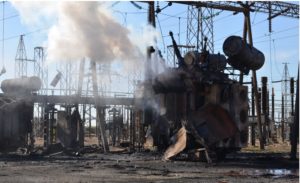
 Europe up to the 25th Anniversary of his unjust imprisonment and solitary confinement by the Turkish state. An Internationalist Long March is poised to spotlight this anniversary, beginning in Basel-Switzerland on 10 February, and will include key events such as a conference in Strasbourg on 15 February and a pan-European demonstration in Cologne and Düsseldorf, Germany, on 17 February. SNP Westminster Member of Parliament, Tommy Sheppard, recently met with Öcalan’s lawyers at the Council of Europe meeting and has written to UK government foreign secretary to call on him to take up Öcalan’s incarceration by the Turkish government and demand his release (text below).
Europe up to the 25th Anniversary of his unjust imprisonment and solitary confinement by the Turkish state. An Internationalist Long March is poised to spotlight this anniversary, beginning in Basel-Switzerland on 10 February, and will include key events such as a conference in Strasbourg on 15 February and a pan-European demonstration in Cologne and Düsseldorf, Germany, on 17 February. SNP Westminster Member of Parliament, Tommy Sheppard, recently met with Öcalan’s lawyers at the Council of Europe meeting and has written to UK government foreign secretary to call on him to take up Öcalan’s incarceration by the Turkish government and demand his release (text below).
 The EU Energy Cities network has actually put together
The EU Energy Cities network has actually put together 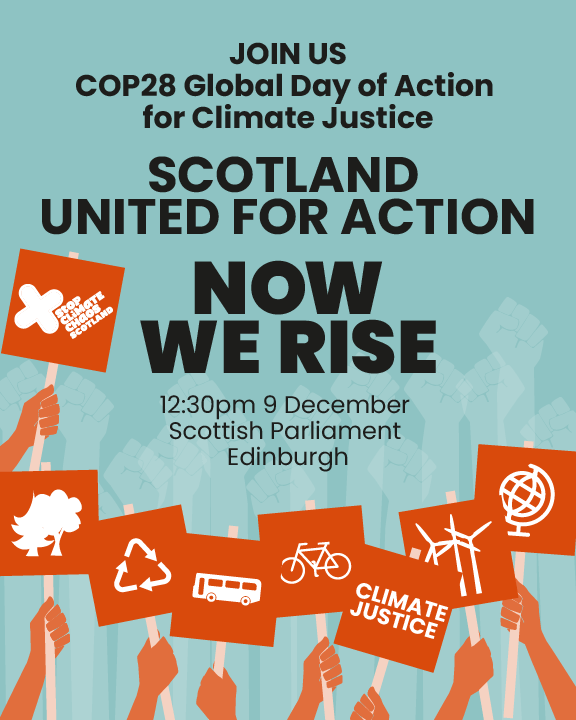




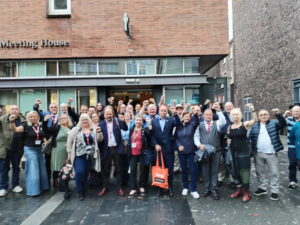
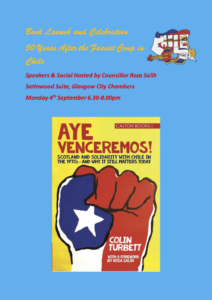
 Programme still in development for September 2023 with participation of FABULA ( For A Better Understanding of Latin America ) Full details here:
Programme still in development for September 2023 with participation of FABULA ( For A Better Understanding of Latin America ) Full details here: 